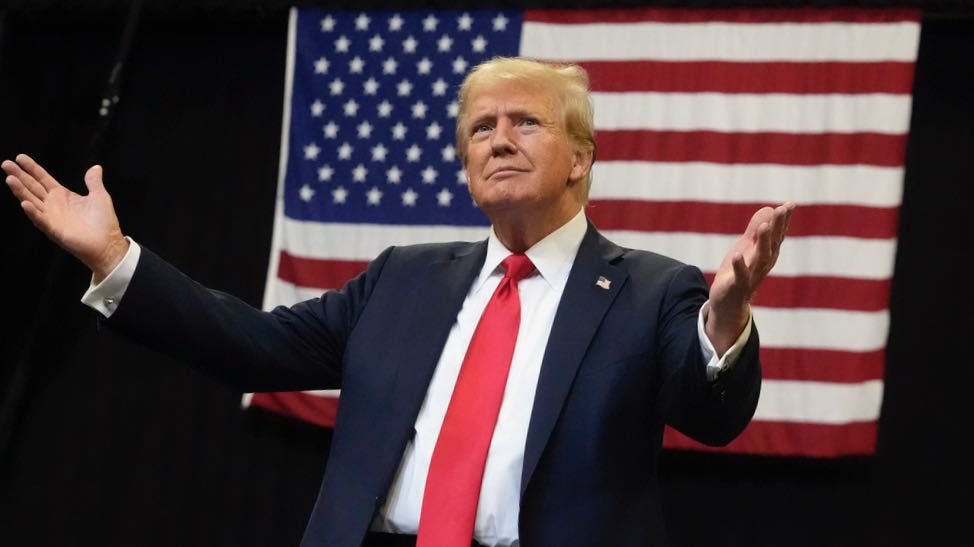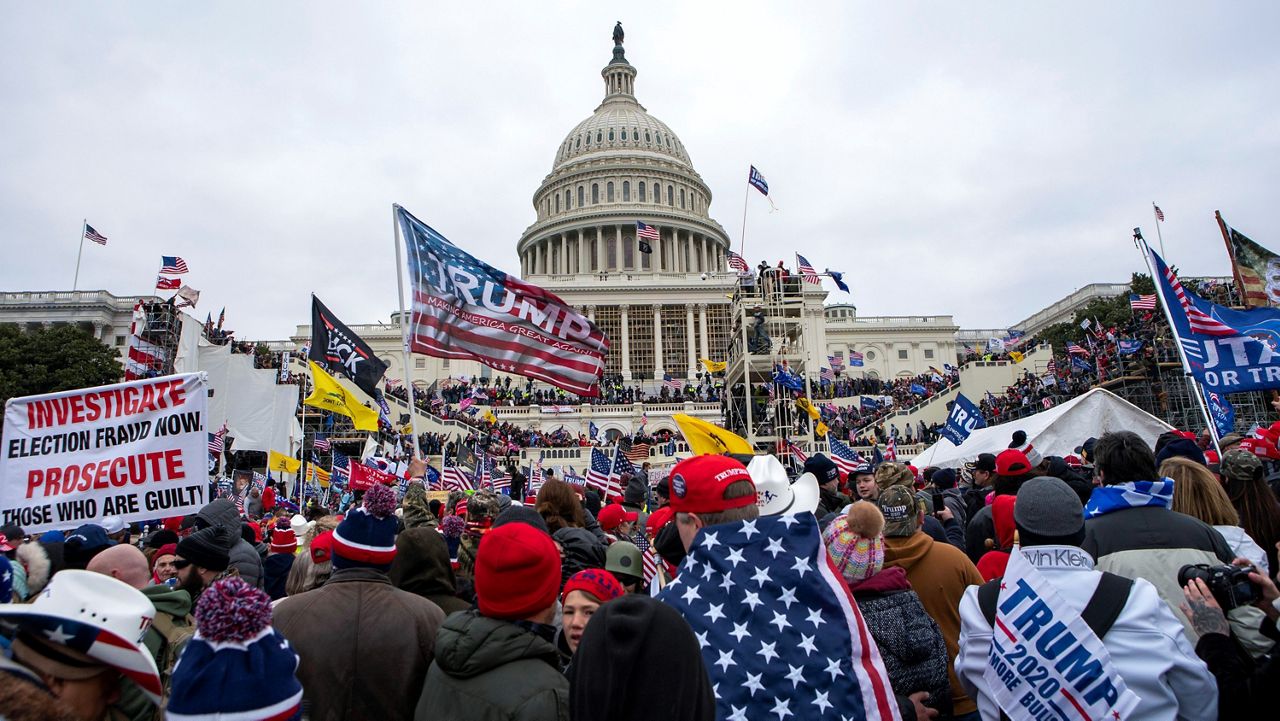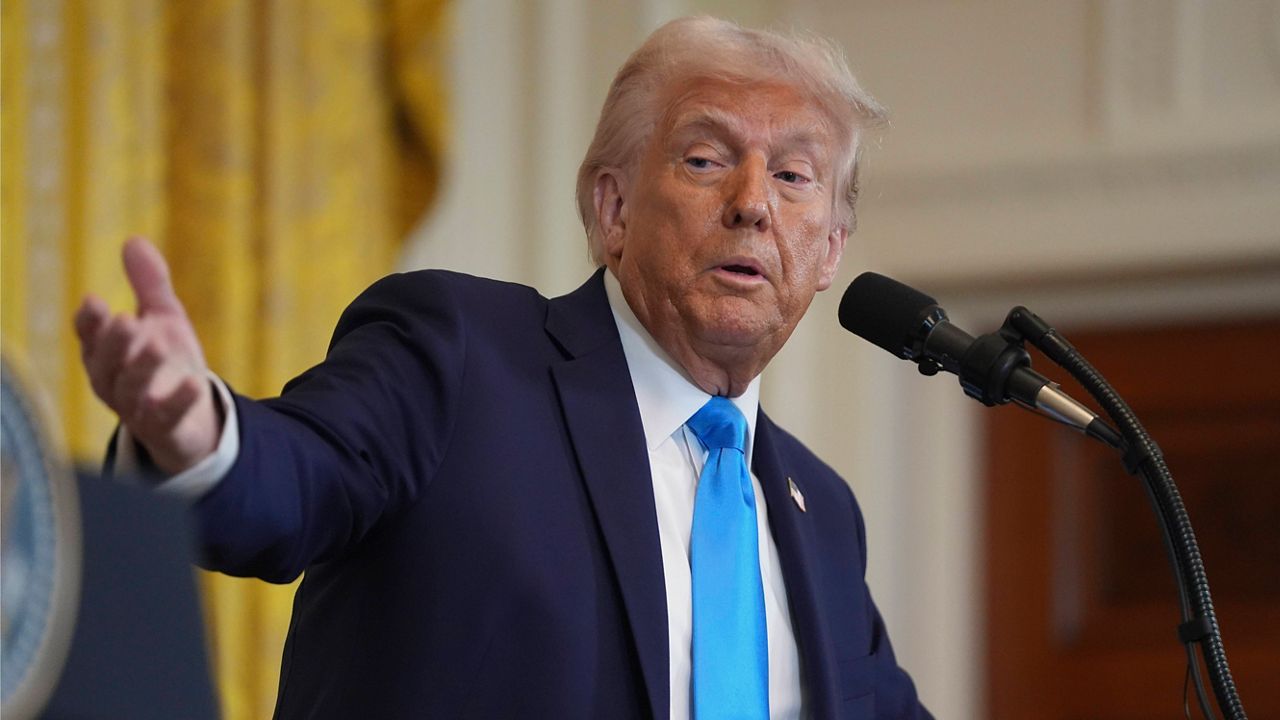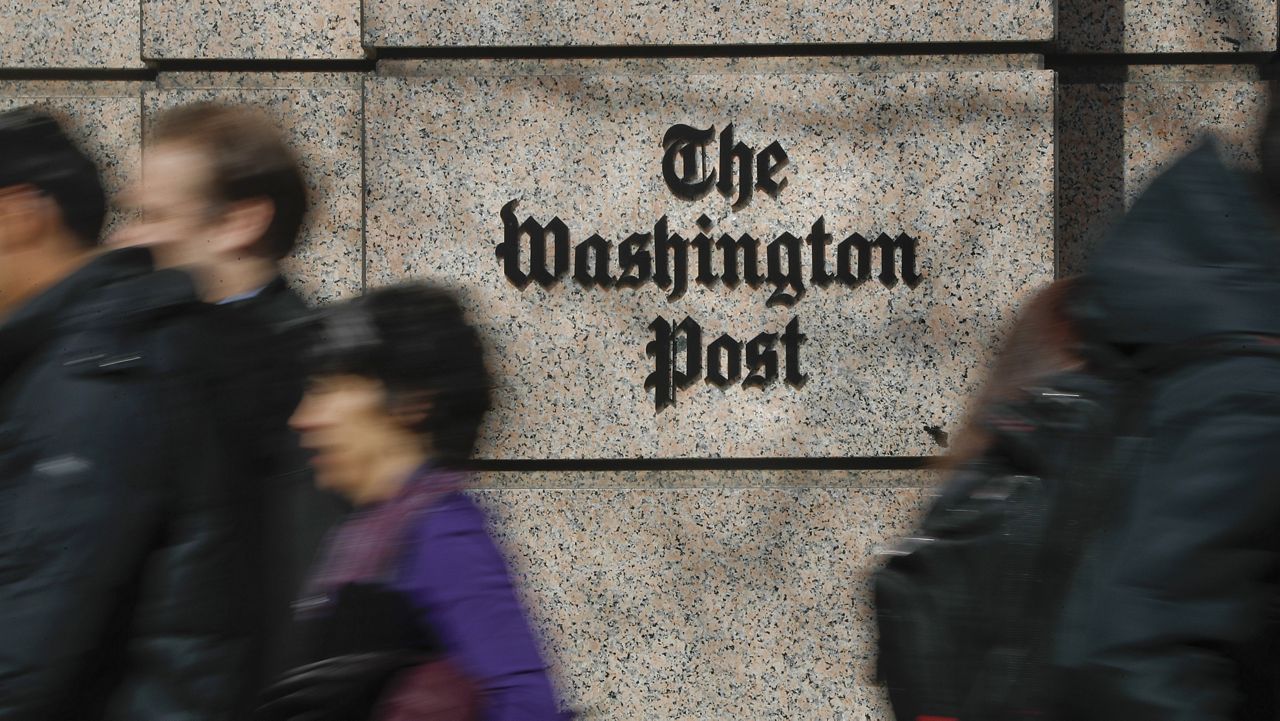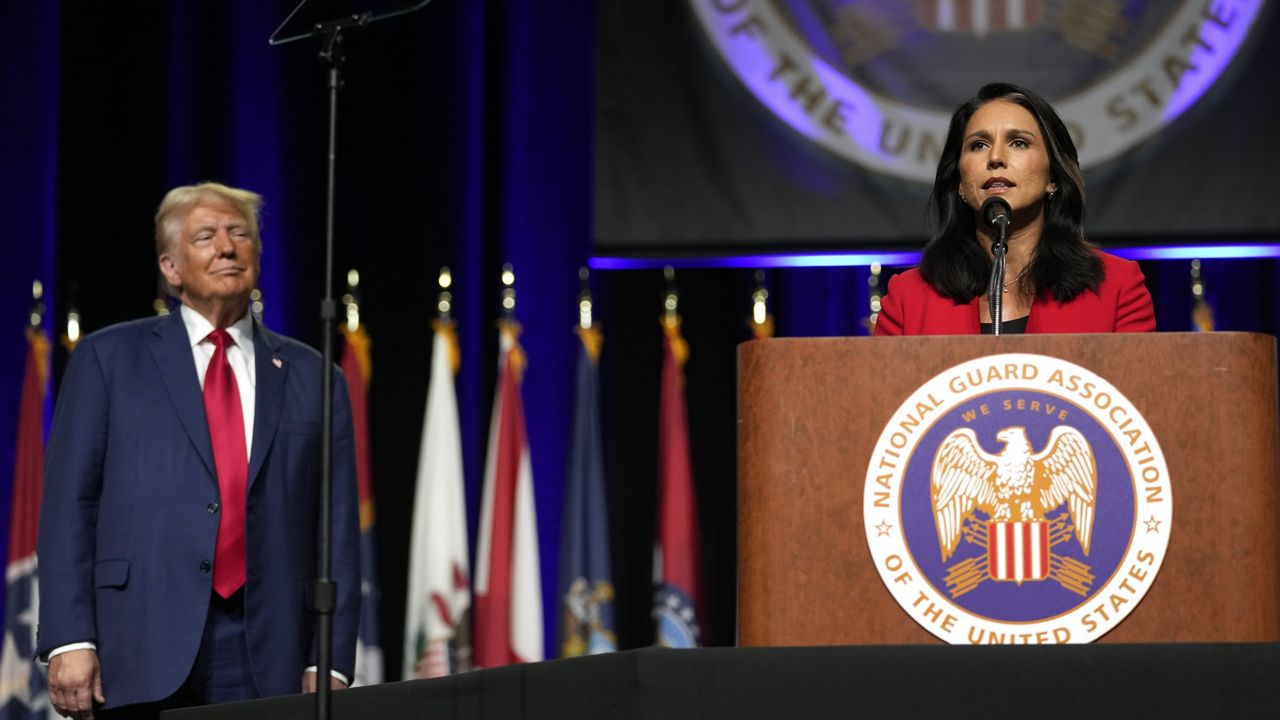Republican presidential nominee Donald Trump suggested that local police would be given prominent roles in his mass deportation strategy in an interview with Spectrum News on Tuesday. saying that law enforcement agencies would be given "authority."
"Our local police know everything about these criminals that have come into the country. They know their names and their middle name, they know where they live, what country they came from," the former president said.
"We’ll work with the local police and we have to get them out and you’re going to want them out and everybody’s going to want them out and you’re going to see crime numbers that are astronomical, because now they’re settling in and they’re getting comfortable," he added, before claiming that violent criminals are "coming from Africa, they’re coming form Asia, they’re coming from the Middle East and they’re coming from South America" — from everywhere but Europe, he seems to suggest — and that crime rates are down globally as a result.
Trump did not note sources for any of his assertions. However, researchers have found that immigrants are significantly less likely to commit crimes than people born in the United States — including one study from researchers at Northwestern University, finding that immigrants are 60% less likely to be incarcerated than native-born Americans.
“Our study shows that since 1870, it has never been the case that immigrants as a group have been more incarcerated than the U.S.-born,” economist Elisa Jacome said.
Trump has made immigration -- specifically pledging the "largest deportation operation" in the country's history -- a cornerstone of his campaign, but the specifics of his deportation policy or logistics have been scant. In an interview with ABC News over the weekend, Vance said that deportations should take a sequential approach and "start with 1 million."
However, Trump did not define what role local police would have in immigration enforcement. Instead, he immediately went on to insist that he would give police "immunity, because they’re always being tortured by the radical left, who wants to defund them, actually, and I want to over-fund them, because they deserve it."
Democratic presidential nominee Kamala Harris, he said, wants to "defund the police, despite the fact that the vice president, a former prosecutor, has categorically denied interest in doing so.
In past interviews, especially in the thick of the 2020 protests of the murder of George Floyd by Minneapolis police, Harris said that American cities should consider "redirecting resources where they are needed to truly support communities to be healthy and therefore safe," she said on the radio show Nick Cannon Mornings, as reported by ABC.
Both Trump and Harris have advocated for eliminating taxes on tipped earnings. Trump was first to offer the idea in June, during a rally in Nevada; Harris followed, piggybacking on the policy last week, also in Nevada.
When asked how his administration would approach eliminating taxes on tipped earnings, Trump told Spectrum News that he would do "the full bore" — eliminating both income tax, as paid by employees, and payroll tax, as paid by both employers and employees, through tax withheld from an employee’s paycheck. While federal income taxes more generally go into goverment coffers, federal payroll taxes fund many government social programs, including Social Security, Medicare and unemployment insurance. Eliminating payroll would then likely negatively impact federal funding for those social programs.
Trump said that he would "make that up with growth," promising to "drill baby drill" and increase oil and natural gas ("or as I call it, liquid gold," he said) production.
When reached, a Harris campaign official said that a tips would not be subject to income tax, but would still factor into payroll taxes. The campaign said that it would work with Congress to craft legislation with an income limit and "strict requirements" to prevent white-collar professionals from restructring their compensation to take advantage of the policy.
Trump, who Monday night sat down for a public conversation with X, Tesla and SpaceX CEO Elon Musk, has repeatedly promised to eliminate electric vehicle mandates put in place by the Biden administration. He was asked Tuesday by Spectrum News to clarify how he would approach those changes — including if they might involve rolling back electric vehicle tax credits and emission requirements.
"Well, we’re looking at that," Trump said, before describing his "amazing evening…in terms of hits and views" with Musk, which he very generally said "broke every single record in the book."
Lastly, Trump was asked to define his criteria for what a fair, legal and transparent election is, borrowing terms from both Trump and Republican National Committee Chair Michael Watley.
"Well, we just want fair elections," Trump said. "I mean, basically, if somebody votes, we want the vote counted and we don't want ballots dropped, and we don't want a lot of bad things happen."
(There is no evidence of widespread fraud in the 2020 presidential election, a fact backed up by officials in both political parties, including Trump's own administration. Claims of fraud were rejected from courts nationwide, including the U.S. Supreme Court.)




